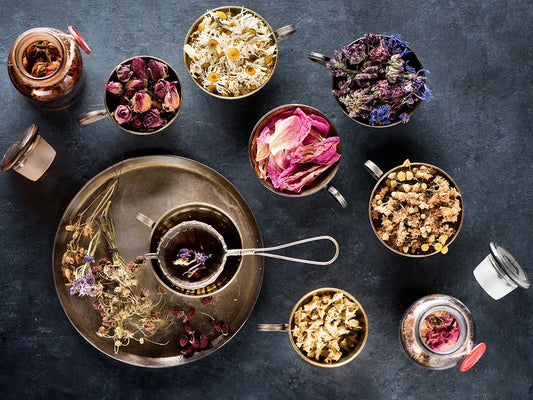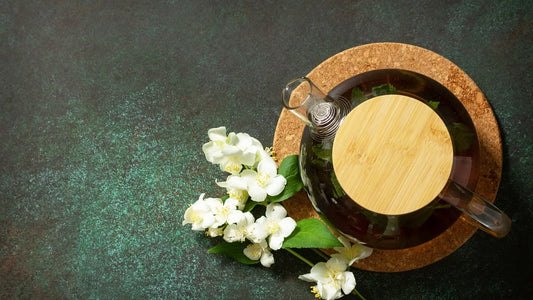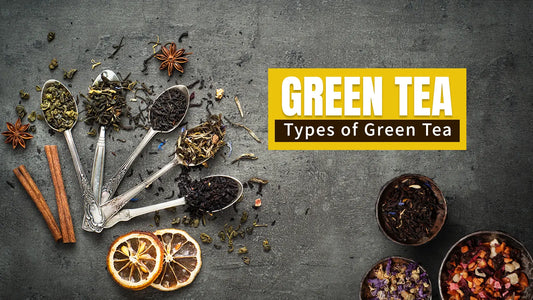White Teas: Everything You Need to Know
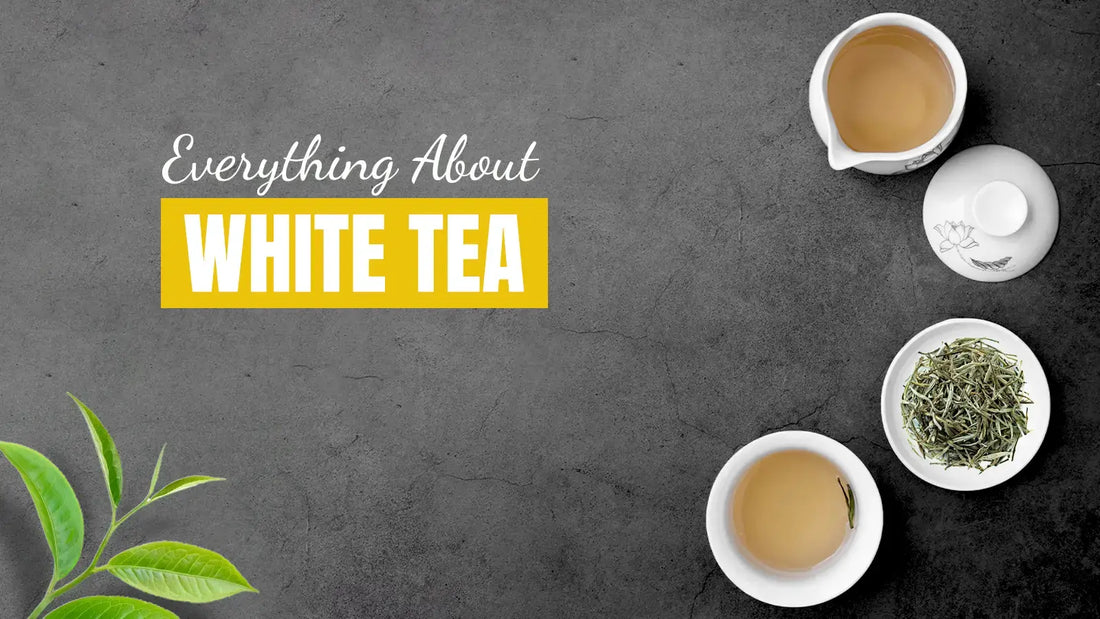
We often reach for black teas, green teas, or chai in our daily routines. But, do you want to explore something more special?
Well, that’s what white tea offers - rarity and exclusivity! These loose-leaf teas are some of the most expensive teas, loved for its sweet yet delicate flavor profile.
If you’re a beginner and ready to embark into the journey of white tea, here’s everything you need to know.
What is white tea?
White tea is one of the teas derived from the Camellia Sinensis plant. Its unique feature is that this tea undergoes minimal processing: withering and drying only. That’s why white tea has the most delicate flavor among other variants.
Only unopened buds or young leaves are used for the white tea. Since the leaves are only slightly oxidized while drying, these teas have a silvery-white color.
What does white tea taste like?
White tea has a very delicate and subtle flavor profile. It usually offers a floral, fruity, sweet taste with a silky texture. You could expect the common notes of honey, peach, apricot, slightly lavender, etc.
Types of White Tea
Silver Needle
First, if you want to try out the rarest and most premium quality of white tea, there’s silver needle tea. These teas actually look like silver needles and are made from the youngest buds. It offers a sweet, floral, and fruity taste with the notes of honey. Our silver needle tea is the finest loose leaf from the Himalayas.
White Peony
White Peony or Bai Mu Dan, is a second premium white tea that has just two leaves and a silvery bud. It offers a very mild flavor with a fruity, sweet, earthy, and nutty taste. If you’re looking for a high-quality yet cheaper option than the silver needle tea, it could be an ideal choice for you.
Tribute Eyebrow
Next, tribute eyebrows are categorized as third-grade white tea. These teas that are produced using the larger leaves and young buds resemble the eyebrow. It has a delicate flavor with sweet and floral notes.
How much caffeine is in white tea?
Generally, white tea has much lower caffeine in comparison to the black tea. The caffeine in white tea could vary from 6 to 55 mg.
However, other factors could also influence the caffeine levels. For Instance, based on the type, the silver needle has a comparatively greater amount than the white peony.

Nutritional Information about White Tea
White tea consists of less macronutrients and more antioxidants like tannins, flavonoids, and polyphenols. It’s because the tea is processed very minimally.
There’s most likely 0 energy, fat, sugar, protein, fiber, etc.

How to brew white tea?
Normally, the white tea is enjoyed by brewing it with just hot water. This way you could savor the natural taste of tea.
However, we highly encourage you to prepare the white tea as per your preference to fully appreciate it.
Below, we have compiled the instructions to make a cup (8 fl oz) of white tea.
You’ll need
- 2-3 grams or 1-1.5 teaspoons of white tea
- 9 fl oz of filtered water
- Teapot
- Teacup
- Kettle
- Strainer
Instructions
- First, pour the water into a kettle and boil the tea.
- Once the water reaches its boil, leave it for 2-3 minutes to cool down. This will probably bring down the water temperature to around 170°F to 185°F.
- Now, put the white tea leaves into your teapot.
- Then, pour the hot water into the teapot.
- Steep your white tea for around 5-6 minutes for a mild-calming flavor. If you want a mild-soothing experience, you may steep for approximately 10 minutes. (Adjust accordingly).
- Pour white tea into your cup using a strainer.
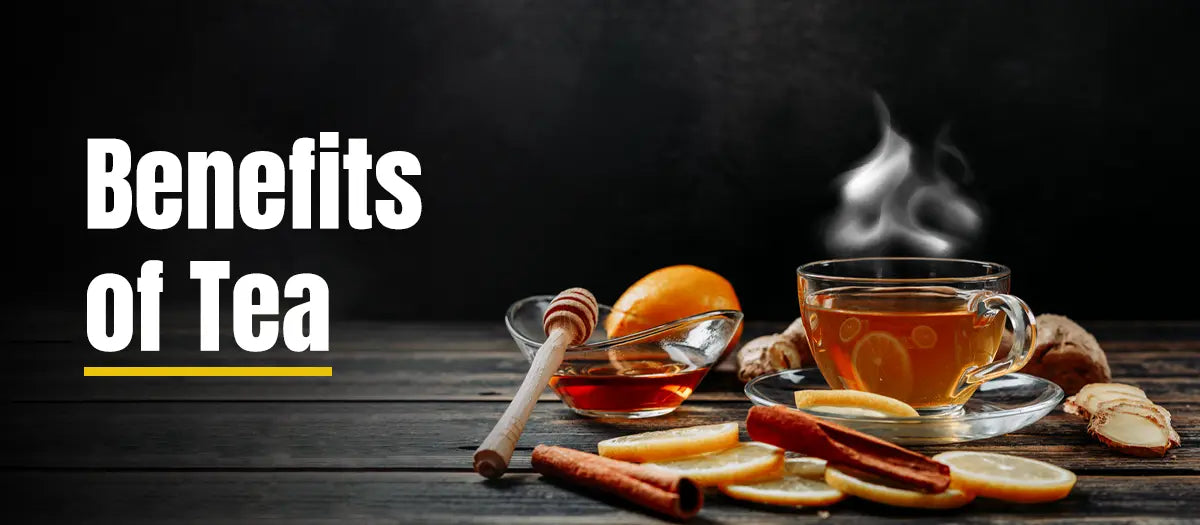
White Tea Benefits
Since white teas are just slightly processed, more nutrients are preserved, making them highly rich in antioxidants. Due to this reason, white tea might provide numerous health benefits.
May Improve Dental Health
Did you know that drinking white tea may also be helpful in improving your dental health? White teas consist of an antimicrobial effect that might be useful in preventing tooth decay or gum disease.
May Enhance Immunity
White tea is abundant in antioxidants that might strengthen the immune system, protecting the body against bacteria and viruses. A study mentioned that consuming white tea could reduce the poor immune system symptoms for HIV-infected people.
May Help Weight Management
White tea’s polyphenol properties could contribute to boosting metabolism and breaking down fat cells faster. So, drinking white tea may help people lose weight.
May Improve Heart Health
The catechin content in white tea may help to decrease bad cholesterol levels, relax blood vessels, and improve heart health.
May Promote Healthier skin
Drinking white tea regularly may help to rejuvenate your skin, making it look healthy. White tea’s antioxidant properties could be useful in getting rid of the free radicals in the skin.
White Tea vs Green Tea
White tea and green tea are two separate kinds of tea. Each tea is processed differently and has different tastes, health benefits, and nutrients. Let’s compare them and draw out the differences.
- Processing:
White tea is processed with only two steps to retain its flavor and nutritional content. It is minimally oxidized.
On the other hand, green tea is processed with more steps compared to the white tea. Also, green teas are not oxidized.
- Flavor profile:
White tea’s flavor profile is more delicate, sweet, and floral with subtle notes.
However, green tea offers a comparatively robust flavor with grassy or nutty notes.
- Caffeine:
White tea relatively consists of higher caffeine in comparison to green tea. In a cup, you might find 6 to 55 mg of caffeine in white tea, while there’s 30 to 60 mg in green tea.

White Tea FAQs
Is chamomile a white tea?
No, chamomile is not a white tea. In fact, it’s a type of herbal tea made using dried camomile plants.
Does white tea have caffeine?
Yes, white tea contains caffeine as it also comes from the Camellia Sinensis tea plant. The amount could vary from 6 to 55 mg.
Is white tea good for you?
Yes, since white tea might provide a number of health advantages, it could be good for you. White tea is abundantly packed with antioxidants, catechins, tannins, etc.
What is the highest grade of white tea?
Silver Needle tea is the highest grade of white tea. It is also one of the most expensive white tea that contains only the youngest buds and is harvested in early spring.
Why is white tea so expensive?
White tea is pretty expensive because it has limited production, rare varieties, offers high-quality tea, and requires labor-intensive harvesting.

Conclusion
Are you ready to indulge in the exquisiteness of white tea by yourself?
Experience the luxury firsthand with our Himalayas Best White tea. Crafted from the selectively picked fine young leaves, this tea could be perfect for you to start it. Imagine the smoothest tea you have ever tasted, buy now and enjoy!






